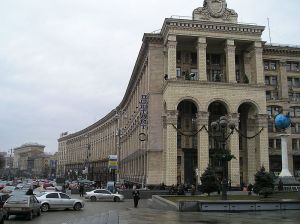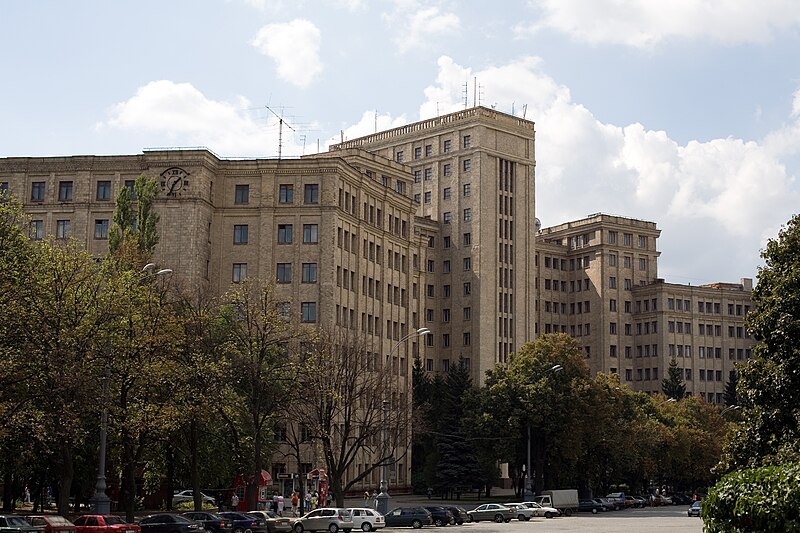Below is the questionnaire from ‘Questions Without Answers’. It is my literary credo.
Introduction in Questions and Answers
0. Who are you?
I was born in 1951 in Kharkov, Ukraine, the USSR, into a lower middle-class family. My mom was a corporate lawyer, and my father was a doctor. Both professions didn’t bring much profit to the people who practiced them, but we were never poor. When I was a baby, my parents went down to Kozelshchina, a big village in the Poltava region, the heart of Ukrainian culture. Hence my two native tongues: Russian and Ukrainian. Back in Kharkov, I graduated from a high school, where my Russian language and literature teacher was Zoya Konovalova, a fantastic person and specialist who explained the basics of the Russian literature to me. At Kharkov State University, I studied computational linguistics and foreign languages. Thanks to my incredible English teacher, Raisa Pogorelova, as well as the Beatles, I mastered English and fell in love with the English literature just as, earlier, with the Russian and Ukrainian ones. One of the consequences of this love was my translation of Alice’s Adventures in Wonderland from English into Russian. I dedicated that work to my daughters, Olga and Marina. I defended my PhD dissertation in 1985, in Leningrad (St. Petersburg). During my whole life, I have been and am working as computational linguist, and I have also been doing fiction—poetry, parodies, stories, novels. Since 1998, my whole family—my wife, Nadia, and my two daughters—has lived in Montreal, Canada. I set up a company here, which I named Lingvistica. Well, linguistics and languages make up all my professional life.
My stories and novels are published all over the world. I am a member of the International Guild for Russian Literary Art, IGRULITA. IGRULITA Press has published four of my Russian books. I also head the Canadian branch of the International Association of Fiction Authors and Publicists, APIA.
1. In the beginning was the Word. What was your first word in the beginning of your artistic career?
I uttered it when I was fifteen years old. My first word was in Russian: a lot of poems and a few critical articles—the latter very similar, in style and determination, to those by one of my literary idols, Dmitri Pisarev. I dreamt of becoming a literary critic. That dream never came true—but my elder daughter, Olga, did become a scholar of literature. You may call it a coincidence, but I know it is not.
2. Oscar Wilde said that all art is quite useless. Is it?
Absolutely. Just as love has no use. Or nature itself. Or a small thing like a loving smile. All the best things and emotions that make up our lives have no use, unlike, for instance, a spoon or a car or a hockey game ticket. Being useful is, in itself, neither bad nor good. Just as being useless is, as such, neither good nor bad.
3. What is art?
Something useless and (but?) necessary. Something full of meaning but (and?) indescribable.
4. What do you need art for?
For being myself, for thinking of something nice when coming across something ugly.
5. What does art need you for?
I wish I knew. I wish it did.
6. What is art for you: hard work or pleasure?
Great pleasure. Even when I work hard, I feel nothing but pleasure—which I want to share with all those few who want to get their share from me.
7. If you could live without creating art, would you agree to abandon it?
God save me!
8. What is the difference between a word, a sound of music, and a dab of paint?
In principle, there is none. But understanding the principle is hard. I keep trying.
9. Who do you create your works of art for?
First of all, for myself. And for those few who need it; I call them my readers.
10. Why do you write prose? Why not poetry?
I did write poetry many years ago before I understood, or maybe just thought, that nothing can be more poetic than prose. Even poetry, which often sounds so prosaic.
11. Was the audience better sometime ago than now?
My readers have never been and will never be numerous. That won’t change. Other changes don’t matter to me.
12. Pop art will eventually kill the genuine art, right?
They are both immortal.
13. Do people really understand your works of art?
My readers do—and they help me understand what I write.
14. Are you talented enough?
Oh, I wish I were. Sometimes, I have an almost physical feeling of lacking talent.
15. What is talent?
I could say if I had enough of it. But I am not even sure I have any.
16. Does anyone help you when you make a work of art?
My life. The people who gave birth to me. The people I gave birth to.
17. Does anyone bother you?
Myself.
18. Censorship is important, at least in some way, right? Too much freedom means no freedom at all, do you agree?
In Russian literature, terrible social oppression didn’t prevent authors from creating the best pieces of literature. Take the Silver Age as an example. But does this mean that oppression is necessary for art to exist? The same goes for censorship.
19. Doesn’t postmodernism mean the decline of art?
It depends on what you mean by postmodernism. For me, it’s just a literary genre; and as any genre, it is represented by geniuses, people of talent, and people of no talent. As in any genre, the latter make up 99.99 percent.
20. Isn’t avant-gardism a kind of profanation of art?
I don’t understand it; it is not my cup of tea. But what if an avant-gardist would ask me as a postmodern author, Isn’t postmodernism a kind of profanation?
21. Who do you envy in arts?
No one but myself. Sometimes, when reading what I wrote sometime ago, I think I will never be capable of writing anything like that anymore. So I have to write something different, and envy myself again.
22. What do you hate in art?
I dislike (not hate, though) mass culture. But it’s not art.
23. Which do you prefer in art: being a student or a teacher?
I want to be a student, but I like being a teacher.
24. When creating a piece of art, do you want it to be understood or perceived?
The latter. Understanding kills art, as Oscar Wilde put it.
25. Do you want to be famous?
I am afraid of being famous although I never will, I hope. When many say they love you, doesn’t it mean that you are loved by no one?
26. Do you despise those who don’t accept your art?
Despising, as my parents taught me, is very bad. And, as I understand now, it’s a sign of weakness. If you don’t like someone, just step aside.
27. The more people accept a piece of art, the better it is, right?
When many people say that they love a piece of art, I always ask myself, do they really? Art is for individuals. You lose your individuality in a crowd—no matter if it’s a crowd of admirers or one of haters.
28. Don’t you deserve more?
I have my readers. They are not numerous, but they are mine, just as I am theirs. Hopefully, we deserve each other although they definitely deserve more.
29. Don’t your antagonists deserve less?
They also have what they deserve, and let them be happy with what they have.
30. Do tastes differ?
Greatly. Although we always think that a different taste is a bad taste, and vice versa.
31. You want to be left alone, right? Why then do you look for success?
While I am composing a story, I want to stay with those who help me. And I stay with them—mentally. When my story is ready, I want them to join in. That’s my version of success: first, to hear, then, to be heard.
32. What do you like more about writing: the process or the result?
Both. Although, sometimes, I am tired of the former and hate the latter.
33. What is the use of questions without answers?
Well, my people’s traditional way is to answer a question with another question. As to the use, all art is quite useless, so what is the use of questions? Thank God they are useless. Which makes them full of sense—provided they are not senseless.
34. You insist that Questions without Answers is a novel in novellas. Why not a collection of novellas?
For me, all real—I mean real—books somehow make up a single novel. And so do novellas. Is it easy to tell a real story from a fake one? Do I have an absolute criterion? Is there such a thing? Of course there is—though I don’t have it. All I can do is to keep writing and hoping that my novellas will make up a real novel; and that novel, sooner or later, will have the honor of becoming part of that immortal human book. A real book, though a human one. I do know who has the criterion, and I do know my responsibility. I have answered that question for myself—maybe because it’s not simple enough?
















